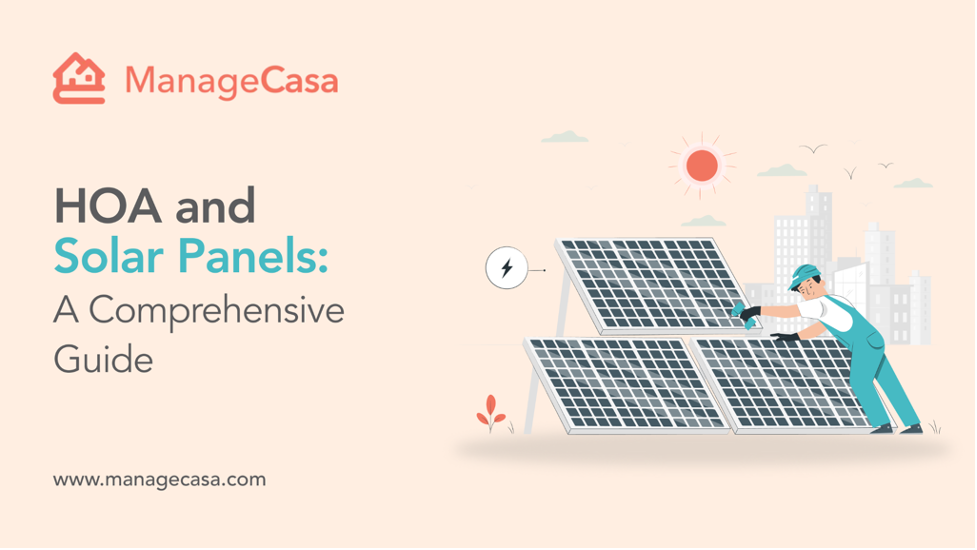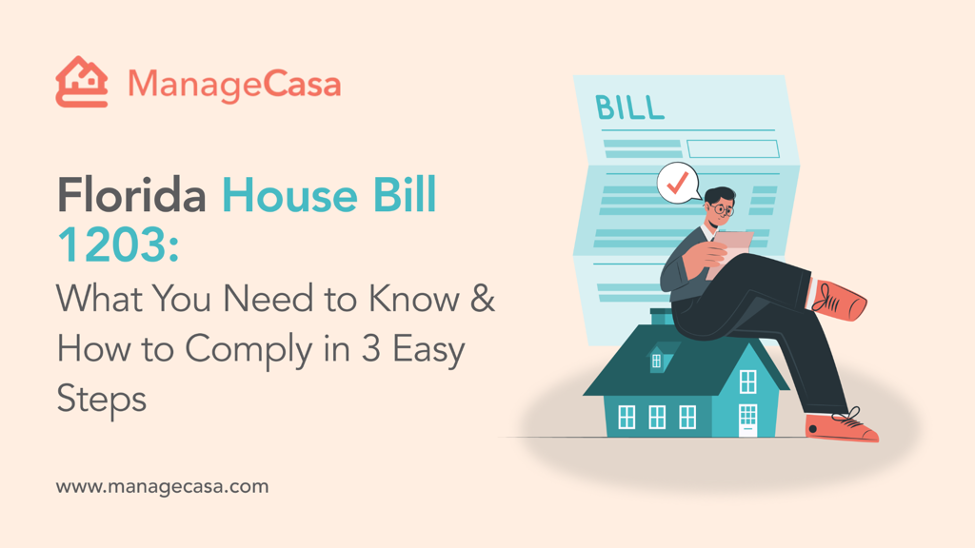Strategies for Recovering Delinquent HOA Dues: A Guide for Homeowners Associations
Every HOA envisions a smoothly running, lively community – a place where fees fuel essential services, amenities, and those minor upgrades that make daily living a bit more special. Yet, when it goes unpaid, the financial strain doesn’t just stay on the books; it affects the whole community.
The consequences of unpaid HOA dues can be far-reaching, leading to deferred maintenance, limited access to amenities, and even increased fees for other compliant homeowners. This is why handling delinquent HOA accounts isn’t just an administrative task—it’s a vital step to keep the community thriving.
In this blog, we’ll discuss strategies for recovering delinquent HOA dues that combine assertive action with a community-minded approach. By blending tried-and-true methods with modern solutions, HOAs can maintain financial stability without sacrificing the comforting atmosphere that makes their neighborhood feel like home.
What Are Delinquent HOA Dues?
Delinquent HOA dues refer to delayed payments that homeowners owe to their HOA but have not paid by the specified due date. Unpaid dues can create a financial shortfall that affects the HOA budget, leaving little room for necessary repairs or improvements. The average HOA dues range from a few hundred to several thousand dollars annually, depending on the community size and amenities provided.
Some common reasons for delinquency include financial hardship, unawareness of payment deadlines, or disputes with HOA management over policies. For HOAs wanting to understand financial best practices, check out Understanding the Basics of HOA Financial Management: A Comprehensive Guide.
Before initiating any collection actions, HOAs should consult their governing documents and be mindful of state laws regulating the HOA collections process. A clear, legally compliant policy sets the groundwork for effective and transparent collections that respect homeowners’ rights.
Conventional Methods for Collecting Delinquent HOA Dues
When dues remain unpaid, HOAs often start with the following approaches:
- Reminder Notices: Initial reminders are the first step in addressing overdue HOA fees. These notices serve as gentle prompts, reminding residents of their financial obligations and encouraging them to bring their accounts current. Reminder notices can include payment details, due dates, and the HOA’s contact information, creating an open line of communication. Establishing these good communication practices can be supported by reading more on HOA Best Practices: Smart Ways to Resolve Conflicts and Boost Communication.
- HOA Late Fees and Penalties: HOAs often impose late fees on delinquent accounts to encourage timely payments. These fees increase the total amount due, incentivizing homeowners to pay on time to avoid additional charges. A clearly outlined penalty policy reinforces the importance of staying current with HOA dues.
- Demand Letters: When dues continue unpaid, HOAs may send demand letters. These formal letters often specify the potential legal action for overdue HOA dues, including the possibility of placing a lien on the property. This more assertive step underscores the HOA’s commitment to seriously addressing delinquent accounts.
While these methods are essential for paying unpaid dues, they may feel impersonal and even create tension. More recently, HOAs are adopting alternative strategies to maintain positive community relations while ensuring financial responsibility.
6 Strategies for Collecting Delinquent HOA Dues

1. Lease the Property to Collect Rental Income
If an HOA has acquired the title to a property through foreclosure, it may have the option to lease the property and use the rental income to cover delinquent dues. This strategy can be part of a broader HOA collections process developed to recover overdue fees without direct conflict.
Benefits
- Revenue Generation: Collecting rent provides a way to recoup overdue payments without directly pressuring the delinquent owner, minimizing the consequences of unpaid HOA dues on the community budget.
- Operational Flexibility: This approach ensures a steady income stream that can support other community needs impacted by unpaid dues.
Cautions
- Community Impact: Renting within an HOA community may affect neighborhood dynamics, as renters might not share the same vested interest in upkeep as owners.
- Legal Complexities: This approach is typically viable only in foreclosure or court authorization cases, limiting its application to figuring out questions like “how to handle delinquent HOA accounts effectively.”
2. Engage Mortgage Lenders
Some mortgage lenders may be willing to cover delinquent HOA fees to protect their financial interest in the property. Coordinating with lenders can be a proactive strategy that will get you answers to “how to collect delinquent HOA fees” while preserving homeowner relationships.
Benefits
- Access to Funds: Lenders are motivated to cover overdue payments to protect their collateral, effectively reducing the consequences of unpaid HOA dues on the association’s finances.
- Homeowner Cooperation: Working with a third party reduces direct homeowner pressure, providing a smoother HOA collections process.
Cautions
- Lender Policies: Not all lenders will agree to cover delinquent dues; some may require significant documentation.
- Coordination Effort: This method can take time, requiring HOAs to be prepared for an extended collections process to ensure a seamless transaction.
3. Secure Payment Through New Homeowners During Sale
Filing a lien on a property secures the overdue amount, so when the property sells, the HOA can recover delinquent dues before ownership transfers. This aligns with discovering “how to handle delinquent HOA accounts” without aggressive tactics.
Benefits
- Secure Recovery: This approach guarantees a collection of HOA due fees since the lien must be cleared for the sale to proceed, ensuring a reliable recovery method.
- Reduced Confrontation: Homeowners selling the property are usually more cooperative, avoiding prolonged disputes over unpaid fees.
Cautions
- Delayed Recovery: As this approach relies on a property sale, it may not result in immediate payment, impacting the HOA budget temporarily.
- Documentation: Accurate lien filing is crucial, as improper filings could undermine legal action for overdue HOA dues.
4. Offer HOA Payment Plan Options
When financial hardships prevent homeowners from paying, offering flexible HOA payment plan options can demonstrate empathy and foster compliance in the long run.
Benefits
- Community Goodwill: Payment plans show that the HOA cares about residents’ situations and are a thoughtful way of handling delinquent HOA accounts without alienating residents.
- Increased Compliance: Structured, affordable plans make it easier for homeowners to catch up on dues, thus reducing the consequences of unpaid HOA dues.
Cautions
- Documentation Required: Clear, written terms for the payment plan are essential to avoid misunderstandings within the HOA collections process.
- Consistency: To maintain fairness, HOA payment plan options should be available equitably to all eligible homeowners.
5. Temporary Penalty Waivers
In some cases, waiving HOA late fees and penalties for prompt payment encourages residents to clear overdue accounts more quickly. This method is particularly effective when goodwill is a priority.
Benefits
- Quick Resolution: Eliminating late fees and penalties can motivate homeowners to settle dues promptly, ensuring fewer unpaid accounts.
- Community Relations: This approach fosters goodwill by demonstrating a flexible collections process and showing the HOA’s willingness to work with residents facing financial challenges.
Cautions
- Policy Consistency: Waivers should be part of a documented policy applied fairly to prevent perceptions of favoritism.
- Risk of Reduced Penalty Effectiveness: Frequent waivers might reduce the impact of HOA late fees and penalties.
6. Request Voluntary Assessments
In cases of significant financial shortfall due to delinquent HOA accounts, voluntary contributions from non-delinquent homeowners can provide a temporary solution to help cover immediate needs.
Benefits
- Financial Stability: Voluntary contributions offset the consequences of unpaid HOA dues without resorting to loans or cutting services.
- Enhanced Community Solidarity: Encouraging voluntary participation fosters a sense of shared responsibility and support within the community.
Cautions
- Uneven Participation: Not all homeowners may be willing or able to contribute, so this should be viewed as a short-term measure.
- Communication Strategy: Transparent communication about the HOA’s financial needs is key to avoiding misunderstandings or resentment among homeowners.
Additional Considerations
To maximize the effectiveness of these strategies, HOAs should establish a well-documented collections policy. This policy should outline each step of the collection process, specify timelines, and clarify any penalties or waivers available. A structured policy reduces the risk of disputes, ensuring homeowners understand their responsibilities and non-payment consequences.
Legal consultation is another critical aspect, as state laws and HOA bylaws can impose specific restrictions on collection actions. For instance, some states regulate penalty fees or limit foreclosure rights for delinquent dues. Working with a legal professional can help HOAs avoid potential lawsuits and ensure compliance with state regulations and fair housing laws.
Your HOA board may also consider the potential impact on relationships within the community. Collections processes that are overly aggressive or punitive can lead to resentment, reducing residents’ willingness to engage with the association constructively. By handling collections sensitively, the HOA can maintain a positive atmosphere while protecting the community’s financial interests.
Recovering delinquent HOA dues is essential yet challenging. While reminder notices and late fees lay the groundwork, innovative strategies—like property leasing, collaborating with mortgage lenders, offering payment plans, and waiving penalties—can make collections more effective and adaptable to varied situations.
Balancing firm collections with empathy is critical. HOAs recover dues while fostering a positive, engaged community by employing respectful, legally compliant methods. However, managing these complexities isn’t easy. That’s where ManageCasa comes in—offering the tools and support HOAs need to streamline operations, ensure compliance, and maintain a thriving, harmonious neighborhood.
Simplify HOA Dues Recovery with ManageCasa
Managing an HOA involves numerous moving parts, from collecting dues to maintaining accurate accounts and overseeing community needs. ManageCasa simplifies these responsibilities by providing a comprehensive, all-in-one platform to streamline HOA operations. With integrated payments, accounting, budgeting, and community management tools, ManageCasa saves time, reduces errors, and supports smoother, more efficient processes.
Key Features of ManageCasa
- Effortless Payment Processing: Residents can collect dues seamlessly through secure portals with multiple payment options, including ACH and credit cards. They can also set up auto-pay to avoid late fees.
- Precise Accounting and Organized Books: Track every payment, bill, and charge with ease, keeping ledgers clear and all funds accurately accounted for.
- Automated Processes for Greater Efficiency: Automate tasks like late fees, management fees, and bulk payments. Our audit trail feature lets you quickly locate and review any transaction as needed.
- Powerful Budgeting and Reporting: Build budgets, forecast income and expenses, and compare budgeted vs. actual financials in real-time, giving you a clear view of your HOA’s financial health.
- Seamless Bank Integration: Instantly connect your bank accounts for simplified payment and reconciliation, keeping all transactions in one organized space.
Managing an HOA can be complex, but with ManageCasa, you have a trusted partner to simplify processes, reduce administrative burdens, and keep your community on track.
Ready to transform your HOA management? Connect for a DEMO today!



